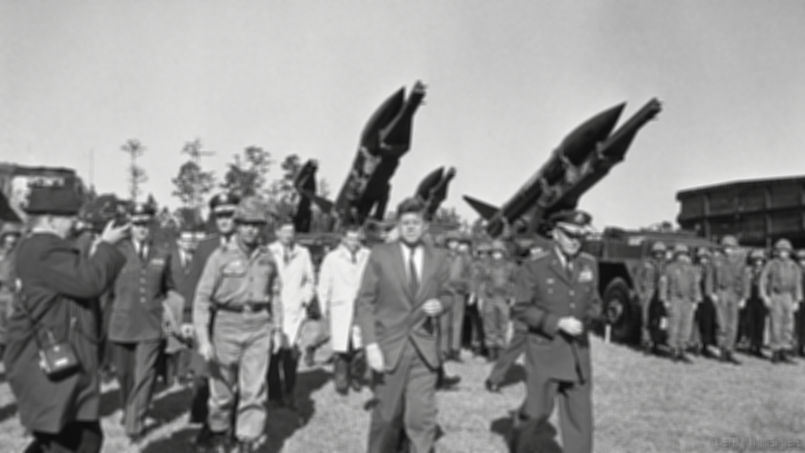

Historical Crisis
A Historical Crisis MUN Committee is set in the past and simulates a topic and committee from a different perspective than a conventional committee. Delegates on a Historical Crisis represent their country or character in a different way, with far more history and context on which to base their positions, and much more potential to build something new and guide humanity on an entirely different course.
Meet Your Presidents

Mauricio Tinoco

Mauricio Molina
Esteemed Delegates,
It is a privilege to welcome you to the 25th edition of BAMUN. My name is Mauricio Tinoco, and I have the distinct honor of serving as the president of the Historical Crisis Committee: The Cuban Missile Crisis – Alternate Timeline.
In this committee, we will dive into one of the most pivotal and tense moments of the Cold War. You will step into the shoes of influential figures from either the United States or the Soviet Union, navigating a world on the edge of nuclear catastrophe. However, unlike the real events of 1962, the path ahead is unwritten. The direction this crisis takes—toward diplomacy, conflict, or an entirely new global order will be determined by your decisions and actions.
This committee is an opportunity for you to showcase leadership, creativity, and diplomatic finesse. Success will depend on your ability to negotiate, build alliances, and adapt in a constantly evolving geopolitical landscape.
I strongly encourage you to prepare thoroughly and engage fully, as your participation will be the driving force behind the committee’s success. Should you have any questions or concerns, feel free to reach out to me at tinoco.mauricio@marymountbq.edu.co
Warm regards,
Mauricio Tinoco
President Historical Crisis Committee
Mauricio Tinoco
President, Historical Crisis
Mauricio Molina
President, Historical Crisis
Dear Delegates,
It is my pleasure to welcome you to the XXV edition of BAMUN. My name is Mauricio Molina, and I have the honor of presiding over the Historical Crisis Committee on the Cuban Missile Crisis: Alternate Timeline.
In this committee, we will revisit one of the most decisive moments of the Cold War. You will take on the roles of key figures aligned either with the United States or the Soviet Union, as both blocs stand on the brink of nuclear conflict. Unlike history, however, the course of events is unwritten.You will be directly involved in shaping the future of this crisis, as it will depend on the decisions you make and the strategies you pursue. Whether peace prevails, war erupts, or a new world order emerges will be entirely up to you.
It is an exercise that gives you an opportunity to enable your leadership, creativity and diplomatic skills in the process of negotiating, forming alliances and possibly warring. I do ask you to get ready thoroughly and to participate substantively, because the effectiveness of the committee will depend upon your personal participation and creative input.
If you have any questions, please do not hesitate to reach out to me at molina.mauricio@marymountbq.edu.co. I hope you all will assume these roles with diligence. Let’s share history together.
Sincerely,
Mauricio Molina
President Historical Crisis Committee
The Cuban Missile Crisis
Committee Topic
Amid one of the most perilous moments of the Cold War, the Historical Crisis Committee gathers to confront the escalating Cuban Missile Crisis of 1962. The revelation of Soviet nuclear missiles stationed in Cuba has plunged the world into unprecedented tension, as the United States and the Soviet Union stand on the brink of nuclear confrontation. Global peace teeters in uncertainty while both sides weigh diplomacy against military action. This crisis embodies the volatility of superpower rivalries and the grave risks of nuclear escalation. Delegates must navigate this rapidly unfolding situation with urgency and precision, balancing national security, global stability, and the pursuit of peace before the world crosses a point of no return.